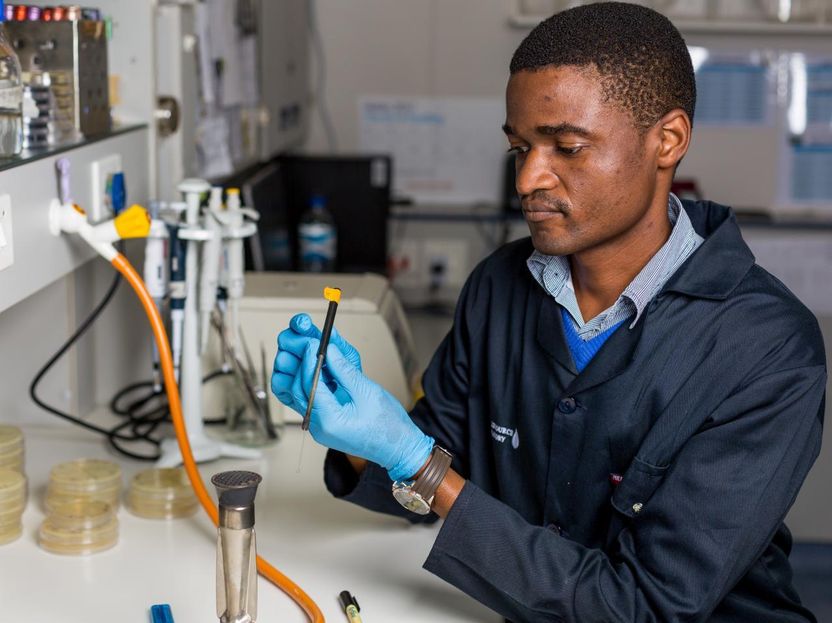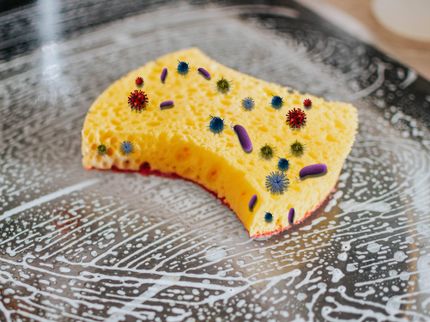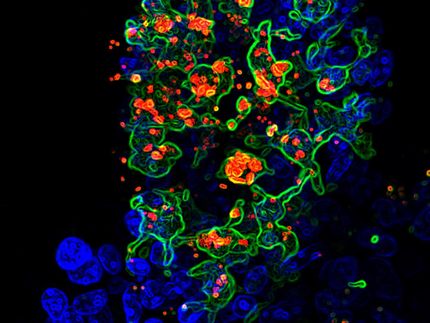Alternative antimicrobial compounds could come from wastewater
Advertisement
Municipal wastewater may become a key ally in the fight against antibiotic-resistant disease-causing bacteria and fungi, a new study at Stellenbosch University (SU) found.

This is South African microbiologist, Dr Thando Ndlovu in his laboratory in the Department Microbiology, Stellenbosch University.
Stefan Els
"Certain bacteria in municipal wastewater produce antimicrobial compounds or biosurfactants that can help prevent the growth of antibiotic-resistant microorganisms which cause serious infections in humans," says Dr Thando Ndlovu a postdoctoral researcher in the Department of Microbiology at SU. Ndlovu recently obtained his doctorate in Microbiology at SU under the supervision of Prof Wesaal Khan from the same department.
He says the rapid increase in the emergence of antibiotic-resistant bacteria was a major reason behind his search for new antimicrobial compounds.
As part of his research, Ndlovu collected wastewater samples and also carried out molecular and microbiological tests in a laboratory on various biosurfactants-producing bacteria found in these samples. He isolated two bacterial strains whose biosurfactants proved effective against antibiotic-resistant disease-causing bacteria.
Biosurfactants are compounds produced naturally by bacteria, fungi or yeasts and they have been commercially utilised in shampoos, shower gels, and household cleaning products. They are also used in food, agriculture, cosmetic and medical industries as well as in environmental bioremediation to prevent the spread of spoilage and disease-causing bacteria.
"The biosurfactants produced by the two bacteria in my study prevented the growth of major disease-causing bacteria such as methicillin-resistant Staphylococcus aureus and gentamicin-resistant E. coli which can lead to life-threatening infections in humans," says Ndlovu.
"This finding is promising given worldwide reports on the number of deaths caused by antimicrobial resistant microorganisms that are becoming increasingly difficult to treat with current drugs."
"The discovery of novel antimicrobial compounds is a priority and biosurfactant compounds could be used to develop new antibiotics for treatment of various infections caused by antibiotic resistant bacteria and eventually replace ineffective antibiotics in future."
Ndlovu says his study showed that municipal wastewater is ideal for the isolation of diverse biosurfactant-producing bacteria that could be utilised in the production of such compounds for commercial use.
"While numerous studies have reported on the isolation of biosurfactant-producing bacteria from contaminated soil and terrestrial environments, the current study indicated that municipal wastewater could be exploited for the isolation of diverse biosurfactant-producing bacterial strains."
"Biosurfactant-producing bacteria thrive in polluted environments such as contaminated soil or water. These bacteria also have the ability to outcompete other bacteria in the same environment because the biosurfactant compounds help them to absorb nutrients and to protect them from toxic materials."
Ndlovu adds that biosurfactant compounds can be used to reduce the use of synthetic antimicrobial agents for various purposes such as cleaning and coating agents to prevent the build-up of disease-causing and spoilage bacteria.
As far as future research is concerned, Ndlovu says he is now focusing on the application of biosurfactant compounds with antimicrobial properties.
























































